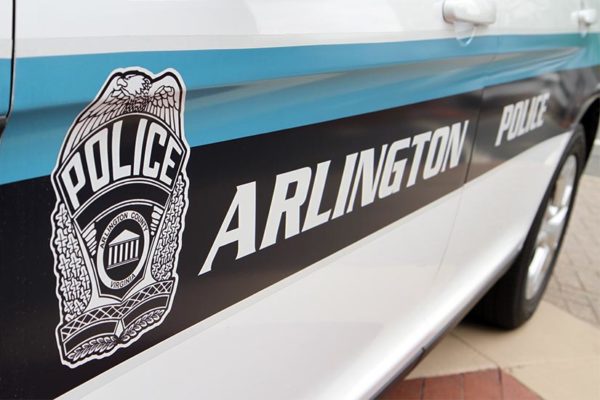The Arlington County Board voted last night to approve tacking on an extra $200 to speeding tickets in certain residential neighborhoods.
Those hoping the fines will lead to people driving slower on residential streets will have to wait awhile for it to take effect, however.
The zones for the $200 additional fine have yet to be established and will only be created after county staff document speeding issues on a given segment of road. That documentation includes a data collection process and written confirmation from the police department that “speeding has been observed through enforcement activities.”
Only once that process concludes, and signs are posted on the street, will the speeding fine zone be established. More from a county staff report:
Once the evaluation concludes that a road segment is suitable for implementation of the “$200 Additional Speeding Fine Zone,” a “$200 Additional Speeding Fine” sign will be attached to the speed limit signs along the road segment to alert drivers of the posted speed limit and the additional penalty for speeding. A speeding citation issued within a “$200 Additional Speeding Fine Zone” is subject to this additional penalty.
County Board members touted the new ordinance as an example of Arlington getting “serious about pedestrian safety,” amid the county’s ongoing Vision Zero process.
More from a county press release:
The Arlington County Board today voted to establish a $200 additional speeding fine zone for residential neighborhoods that meet certain criteria. The move came in response to complaints from residents about speeding and pedestrian safety.
“Arlington is serious about pedestrian safety and serious about enforcing speeding laws,” Arlington County Board Chair Libby Garvey said. “The Board is taking this action to help deter drivers from speeding down residential streets, endangering people who are walking, cycling and using scooters to get around.”
The Board voted unanimously to approve the ordinance change, adopting Virginia State Code 46.2-878.2. To read the staff report, visit the County website. Scroll to Item No. 29 on the agenda for the Jan. 28, 2020 Recessed County Board Meeting.
The Chair noted that speeding fines are just one of many methods the County uses to make streets across Arlington safe for all who use them, including protected bike lanes; signage; traffic signals; enforcement campaigns, and the Vision Zero traffic safety strategy, adopted by the Board in July 2019.
How a road will be designated for the $200 additional fine
The Transportation Division of the County’s Department of Environmental Services will take speeding complaints and existing traffic data into consideration when deciding which residential streets should be considered for the additional fine.
To qualify for the designation, a road must be in a residential area; must be classified as a neighborhood principal, minor arterial or major arterial street on the County’s road classification map and must have a documented speeding issue. A documented speeding issue exists when the County has speed data, collected within five years from the day of the “$200 Additional Speeding Fine Zone” evaluation, showing speeding on the segment; there is a recorded traffic evaluation produced within five years from the day of the “$200 Additional Speeding fine Zone” evaluation, that includes speeding as one of the issues and the County has written confirmation from the Police Department that speeding has been observed through documented transportation safety activities.
Once a road is found to qualify, a “$200 Additional Speeding Fine” sign will be attached to the speed limit signs along the road to alert drivers. The fine will be added to the current fine for speeding in a residential neighborhood, which is $6 for every mile-per-hour above the 25 miles-per-hour speed limit (plus the state-mandated $66 in court fees). The County Manager said staff will widely communicate the new fine.
Background
Imposition of the fine depends on the data-supported speeding confirmation. Any additional revenue generated by the additional fine will be added to the County’s Operational Budget.


